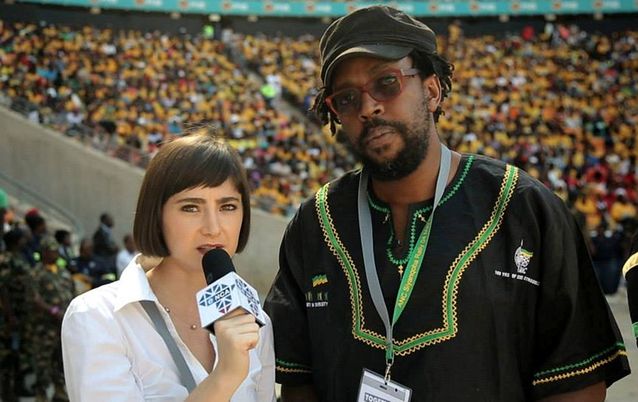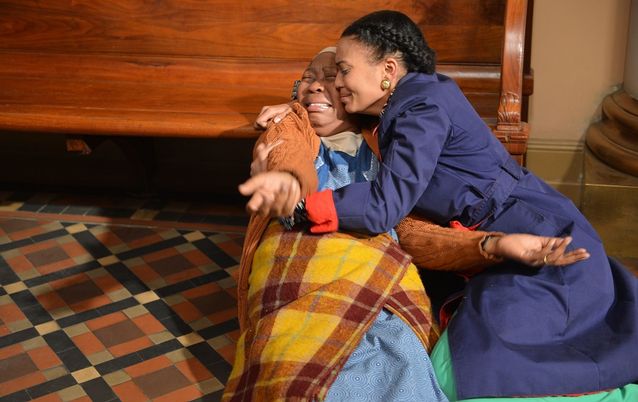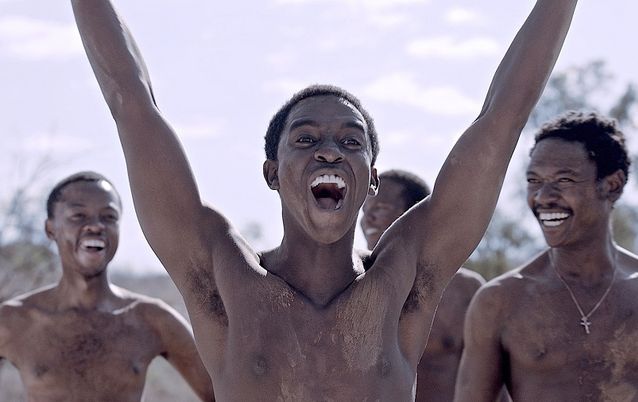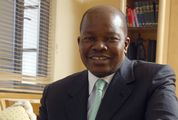REVERENCE for heritage doesn’t come cheap, judging by the R24m budget for Kalushi, a powerful biopic depicting struggle icon Solomon Mahlangu, hanged in 1979.
Sharing the line-up at the 2016 Durban International Film Festival is Wonder Boy for President, a political mockumentary that shows irreverence can get by on a gadfly budget of R300,000.
Both films have been successes with festival audiences and will be screened again on Saturday, during the festival’s closing weekend.
They then head for general release: Wonder Boy for President on July 29, just before the elections; and Kalushi on September 16, in the middle of Heritage Month.
Despite taking years of gestation, Wonder Boy benefits from current narratives of state capture and electioneering, while Kalushi marks the 40th anniversary of the Soweto uprising, and 60 years since Mahlangu’s birth in 1956.
Film-maker John Barker took five years to complete Wonder Boy, "because we had to make it hand to mouth". He’d already worked on high-budget local films, such as Spud 3: Learning to Fly with comedy legend John Cleese, but knew a mockumentary would be a harder sell than an audience-friendly comedy or romcom.
...
WONDER Boy is a satire hinging on a covert ANC operation to plant an Eastern Cape unknown in the party’s higher echelons, where he can be used as a front by established interests.
Fundraising began informally when the team needed to shoot footage at the ANC’s 2012 Mangaung leadership conference.
"Several of us have worked together for about 15 years, going back at least to The Pure Monate Show, which was ahead of its time with the kind of humour that’s more popular now," Barker says.
Their take on photobombing, for example, sees political leaders Jacob Zuma, Helen Zille, Zwelinzima Vavi, Julius Malema, and Mmusi Maimane playing themselves. Creating the illusion, needed major audacity.
"Improvisation is perfect for that," says producer and lead Kagiso Lediga. "We needed a stage shot to establish Wonder Boy at a meeting in Wits Great Hall. So, we told the security guy we just needed to ‘speak to Steven’. We’re waved past, get up there and shake this guy’s hand. He looks at me like, ‘WTF?’ But we’ve got the shot!"
Barker recalls other episodes of blagging. "You arrive at a rally of 90,000 people and are asked for credentials. You’re flanked by MK (Umkhonto weSizwe) veterans and say, ‘Yeah, Wonder Boy is here’. If you say it convincingly enough, everyone’s nodding, ‘Oh, right, Wonder Boy’. It was a series of games — and we love playing games," says Barker.
Those games include South African comedy greats Loyiso Gola, playing himself, and John Vlismas revelling in the part of Emeric the Assassin. Akin Omotoso enjoys himself as a Nigerian political correspondent and Barker even gets a look in himself as "a dodgy construction guy".
"We didn’t even have time to do official crowdfunding," Barker says. But rolling fundraising meant they could show early footage to friends and associates. They turned down one prospective investor who wasn’t happy with the cut shown and wanted to make changes.
They edited themselves strictly, losing about 60% of what they had, Barker says, because it detracted too much from the four central characters. Life also leapfrogged art and "suddenly the opposition was both red and blue", Barker says. "We were asking ourselves whether we had too much Helen and not enough Julius."
Starting in 2011, Barker wrote an outline for Lediga to critique and refine. Dialogue was retrofitted through improvisation by the actors including Tony Miyambo and Ntosh Madlingozi as Wonder Boy’s party handlers, Brutus and Shakes, and Thishiwe Ziqubu as Mbali Sithole of the official opposition. "Brutus was great fun to play," says Miyambo.
"He had fancied himself as the wonder boy, but then Wonder Boy arrives from obscurity and he has to adjust and follow the mandate of his number one."
Both funding and film-making were much more structured for Kalushi, which took debut director Mandla Dube nine years to bring to the screen. He was first introduced to Mahlangu’s family while a lecturer at Wits University, having completed cinematography studies at the American Film Institute.
He had a second master’s in heritage management.
...
THE apathy of the student born-free generation prompted him to start interrogating the nature of freedom, he says. Kalushi culminates a process that has included a stage play and a photographic exhibition viewed by Michelle Obama.
Funding for the project took about 18 months to put together, with major funders including the Department of Trade and Industry, the National Lotteries Commission. The Gauteng department of arts and culture, the National Film and Video Foundation and Gauteng Film Commission also chipped in.
Producer Walter Ayres says: "Our budget wasn’t big against the $10m or $14m of other major local biopics such as Winnie and Long Walk To Freedom, which were our production benchmarks."
Some film-makers are wary that such institutional funders could curtail their creativity, but Dube and his team leveraged it to attract strong contributors including acting and casting expert Adrienne Weiss of Columbia University in New York and costume designer Ruy Filipe from Long Walk To Freedom.
Mahlangu’s brother Lucas was an adviser on the film, and President Jacob Zuma sent a personal letter of endorsement.
The script itself went through "about 20 drafts" until Dube and co-writer Leon Otto were happy with the voice found for Mahlangu.
"We wanted to create more than a docudrama or a courtroom drama," Dube says.
"We wanted to tell the story of real people in real situations, a coming-of-age story that has universal appeal."
Kalushi shows Mahlangu (Thabo Rametsi) struggling to be the good son his churchgoing mother (Gcina Mhlophe) hopes for.
He tries to resist the recruiting efforts of street-smart Tommy London (Welile Nzuza), and refuses to join London, his friends Mondy (Thabo Malema), Lucky (Jafta Mamabolo), and girlfriend Brenda (Pearl Thusi) at a march in Soweto.
The horror that Brenda recounts and his own brutal beating by police pushes Mahlangu to join the ANC in exile in September 1976.
From the well-brought-up boy who carries a full suitcase into ANC camps in Mozambique and Angola, he transforms into an instinctive leader, taking over the mission when London is injured.
But Mahlangu can’t completely control his gun-happy comrades and is found guilty of a killing he didn’t commit through the legal principle of common purpose — which, as the closing moments chillingly remind us, is still on the statute books.
"We obviously couldn’t plan the whole Fees Must Fall movement or even to be ready for the Soweto 40th anniversary — it’s serendipity," Dube says.
"During our research, people begged us not to commercialise the struggle. This isn’t mainstream commercialisation, but it is putting our heritage out there and celebrating it ourselves."
More than 100 feature-length films are being shown at the Durban International Film Festival, which closes on Sunday.
For details of screenings until then, go to: The Durban Film Festival
-

Ruthless journalist Kerry Mercer (Lara Lipschitz) digs for the dirt on Wonder Boy (Kagiso Lediga). Picture: SUPPLIED
-

After the verdict, Solomon Mahlangu’s girlfriend Brenda (Pearl Thusi) comforts his mother Martha (Gcina Mhlophe). Picture: SUPPLIED
-

Mondy (Thabo Malema) celebrates the recruits’ crossing into Mozambique with (left to right) Lucky (Jafta Mamabolo), Solomon (Thabo Rametsi) and Tommy London (Welile Nzuza). Picture: SUPPLIED
REVERENCE for heritage doesn’t come cheap, judging by the R24m budget for Kalushi, a powerful biopic depicting struggle icon Solomon Mahlangu, hanged in 1979.
Sharing the line-up at the 2016 Durban International Film Festival is Wonder Boy for President, a political mockumentary that shows irreverence can get by on a gadfly budget of R300,000.
Both films have been successes with festival audiences and will be screened again on Saturday, during the festival’s closing weekend.
They then head for general release: Wonder Boy for President on July 29, just before the elections; and Kalushi on September 16, in the middle of Heritage Month.
Despite taking years of gestation, Wonder Boy benefits from current narratives of state capture and electioneering, while Kalushi marks the 40th anniversary of the Soweto uprising, and 60 years since Mahlangu’s birth in 1956.
Film-maker John Barker took five years to complete Wonder Boy, "because we had to make it hand to mouth". He’d already worked on high-budget local films, such as Spud 3: Learning to Fly with comedy legend John Cleese, but knew a mockumentary would be a harder sell than an audience-friendly comedy or romcom.
...
WONDER Boy is a satire hinging on a covert ANC operation to plant an Eastern Cape unknown in the party’s higher echelons, where he can be used as a front by established interests.
Fundraising began informally when the team needed to shoot footage at the ANC’s 2012 Mangaung leadership conference.
"Several of us have worked together for about 15 years, going back at least to The Pure Monate Show, which was ahead of its time with the kind of humour that’s more popular now," Barker says.
Their take on photobombing, for example, sees political leaders Jacob Zuma, Helen Zille, Zwelinzima Vavi, Julius Malema, and Mmusi Maimane playing themselves. Creating the illusion, needed major audacity.
"Improvisation is perfect for that," says producer and lead Kagiso Lediga. "We needed a stage shot to establish Wonder Boy at a meeting in Wits Great Hall. So, we told the security guy we just needed to ‘speak to Steven’. We’re waved past, get up there and shake this guy’s hand. He looks at me like, ‘WTF?’ But we’ve got the shot!"
Barker recalls other episodes of blagging. "You arrive at a rally of 90,000 people and are asked for credentials. You’re flanked by MK (Umkhonto weSizwe) veterans and say, ‘Yeah, Wonder Boy is here’. If you say it convincingly enough, everyone’s nodding, ‘Oh, right, Wonder Boy’. It was a series of games — and we love playing games," says Barker.
Those games include South African comedy greats Loyiso Gola, playing himself, and John Vlismas revelling in the part of Emeric the Assassin. Akin Omotoso enjoys himself as a Nigerian political correspondent and Barker even gets a look in himself as "a dodgy construction guy".
"We didn’t even have time to do official crowdfunding," Barker says. But rolling fundraising meant they could show early footage to friends and associates. They turned down one prospective investor who wasn’t happy with the cut shown and wanted to make changes.
They edited themselves strictly, losing about 60% of what they had, Barker says, because it detracted too much from the four central characters. Life also leapfrogged art and "suddenly the opposition was both red and blue", Barker says. "We were asking ourselves whether we had too much Helen and not enough Julius."
Starting in 2011, Barker wrote an outline for Lediga to critique and refine. Dialogue was retrofitted through improvisation by the actors including Tony Miyambo and Ntosh Madlingozi as Wonder Boy’s party handlers, Brutus and Shakes, and Thishiwe Ziqubu as Mbali Sithole of the official opposition. "Brutus was great fun to play," says Miyambo.
"He had fancied himself as the wonder boy, but then Wonder Boy arrives from obscurity and he has to adjust and follow the mandate of his number one."
Both funding and film-making were much more structured for Kalushi, which took debut director Mandla Dube nine years to bring to the screen. He was first introduced to Mahlangu’s family while a lecturer at Wits University, having completed cinematography studies at the American Film Institute.
He had a second master’s in heritage management.
...
THE apathy of the student born-free generation prompted him to start interrogating the nature of freedom, he says. Kalushi culminates a process that has included a stage play and a photographic exhibition viewed by Michelle Obama.
Funding for the project took about 18 months to put together, with major funders including the Department of Trade and Industry, the National Lotteries Commission. The Gauteng department of arts and culture, the National Film and Video Foundation and Gauteng Film Commission also chipped in.
Producer Walter Ayres says: "Our budget wasn’t big against the $10m or $14m of other major local biopics such as Winnie and Long Walk To Freedom, which were our production benchmarks."
Some film-makers are wary that such institutional funders could curtail their creativity, but Dube and his team leveraged it to attract strong contributors including acting and casting expert Adrienne Weiss of Columbia University in New York and costume designer Ruy Filipe from Long Walk To Freedom.
Mahlangu’s brother Lucas was an adviser on the film, and President Jacob Zuma sent a personal letter of endorsement.
The script itself went through "about 20 drafts" until Dube and co-writer Leon Otto were happy with the voice found for Mahlangu.
"We wanted to create more than a docudrama or a courtroom drama," Dube says.
"We wanted to tell the story of real people in real situations, a coming-of-age story that has universal appeal."
Kalushi shows Mahlangu (Thabo Rametsi) struggling to be the good son his churchgoing mother (Gcina Mhlophe) hopes for.
He tries to resist the recruiting efforts of street-smart Tommy London (Welile Nzuza), and refuses to join London, his friends Mondy (Thabo Malema), Lucky (Jafta Mamabolo), and girlfriend Brenda (Pearl Thusi) at a march in Soweto.
The horror that Brenda recounts and his own brutal beating by police pushes Mahlangu to join the ANC in exile in September 1976.
From the well-brought-up boy who carries a full suitcase into ANC camps in Mozambique and Angola, he transforms into an instinctive leader, taking over the mission when London is injured.
But Mahlangu can’t completely control his gun-happy comrades and is found guilty of a killing he didn’t commit through the legal principle of common purpose — which, as the closing moments chillingly remind us, is still on the statute books.
"We obviously couldn’t plan the whole Fees Must Fall movement or even to be ready for the Soweto 40th anniversary — it’s serendipity," Dube says.
"During our research, people begged us not to commercialise the struggle. This isn’t mainstream commercialisation, but it is putting our heritage out there and celebrating it ourselves."
More than 100 feature-length films are being shown at the Durban International Film Festival, which closes on Sunday.
For details of screenings until then, go to: The Durban Film Festival






















